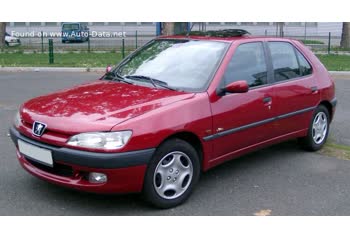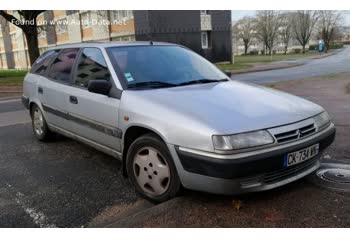Everything you need to know about specifications and performance - Peugeot 306 1993 - 1.8 (101 Hp) Automatic

Overview:
What is the engine capacity of a Peugeot 306 1993?
The engine capacity of the Peugeot 306 1993 is 1762.
Peugeot 306 1993 How many horsepower?
The engine power of the Peugeot 306 1993 is 101 Hp @ 6000 rpm..
What is the Peugeot 306 1993 engine?
Peugeot 306 1993 engine is LFY XU7JP4. (Click to see other cars using the same engine)
How much gasoline does a Peugeot 306 1993 consume?
The Peugeot 306 1993 consumes 8 liters of gasoline per 100 km
General:
Engine:
Performance:
Space:
dimensions:
Powertrain, Suspension and Brakes:
See also

Last generation.
Its production began in 2000 until 2002

Other generation.
Its production began in 1994 until 1997

Same engine. (LFY XU7JP4).
Its production began in 1998 until 2001

Same engine. (LFY XU7JP4).
Its production began in 1995 until 1997

Same engine. (LFY XU7JP4).
Its production began in 1995 until 1998

Same production year and almost the same engine capacity.
Its production began in 1993 until 2003

Write a comment